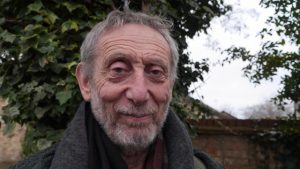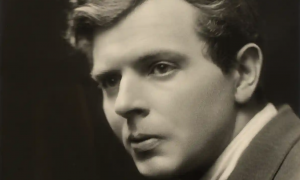Today on My Poetic Side we look at the proposed memorial for Shelley and the war poet whose poems have never been heard before.
Memorial to Shelley is Supported by Michael Rosen
 A £40,000 fundraiser is being launched by the Shelley Memorial Project in order to create a memorial to the poet Percy Bysshe Shelley in Horsham.
A £40,000 fundraiser is being launched by the Shelley Memorial Project in order to create a memorial to the poet Percy Bysshe Shelley in Horsham.
Michael Rosen, the former Children’s Laureate has added his support to the project for the man who he believes is one of the greatest British poets to have ever lived. He thinks the idea of building a memorial to him close to where he was born is a great way to remember him. Shelley was born on Wareham at Field Place.
The Memorial Project are planning to hold a marathon poetry reading event which they have dubbed “The Shelleython” and are looking for volunteers to help them with the reading in what they are hoping will be a record-breaking event. It is hoped to make the event a sponsored one with volunteers reading every single one of Shelley’s 450 poems, this will take place over Zoom.
The aim of the project is to commission a public piece of artwork that will commemorate the life and work of the poet; £40,000 is just an initial target for the fund.
This memorial would be a lasting replacement for the controversial Shelly Fountain. The fountain, which was previously known as The Rising Universe was first installed in the centre of Horsham in order to commemorate the 200th anniversary of the poet’s birth. Frequent breakdowns meant that in 2016, the foundation was sold and then removed. At the time it had been in place for 20 years near the Lynd Cross pub.
Great War Poets Silenced Voice Heard for First Time
 The great poet Ivor Gurney composed thousands of poems and songs whilst locked in an asylum. At the time, his writing was mostly ignored. However, a new study has been looking into the genius in his writing.
The great poet Ivor Gurney composed thousands of poems and songs whilst locked in an asylum. At the time, his writing was mostly ignored. However, a new study has been looking into the genius in his writing.
During his lifetime, his writing was seen as being “too crazy” for publication but an in-depth look at the poems has now revealed a completely different side to what is being hailed as his genius.
He is credited with having written some of the first world war’s most anthologised poems. He also composed a number of well-known songs. He suffered periods of manic depression throughout much of his life, following the end of the war he was both delusional and suicidal. In 1922, his family had him declared insane and he was sent to a psychiatric hospital until he died at the age of 47, just 15 years later. The cause of his death was tuberculosis.
During his time in the asylum, he tried to escape three times, he wrote over 650 poems and 200 songs and even penned several plays. However, they have been in a library archive for the last 100 years as they were not considered to be suitable for being published.
Rare access was granted to the archives for Dr Kate Kennedy who has written a biography of the poet; she is just one of a handful of people who have ever read most of the poems.


You must register to comment. Log in or Register.